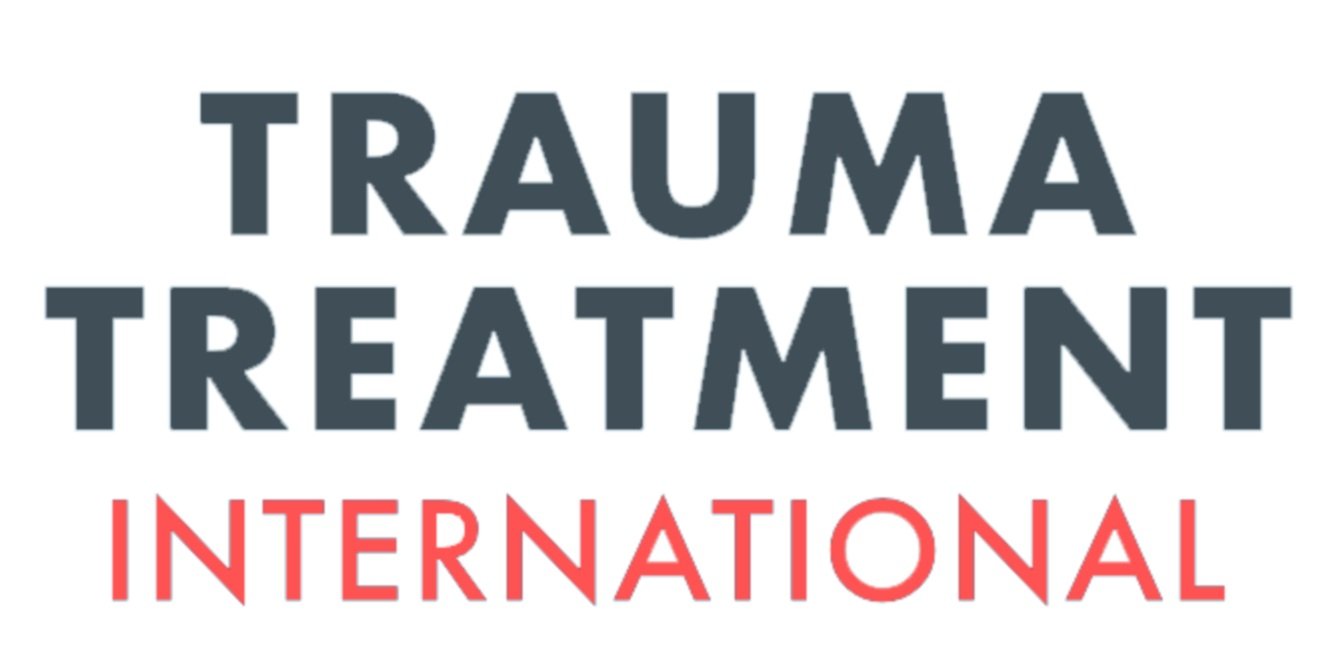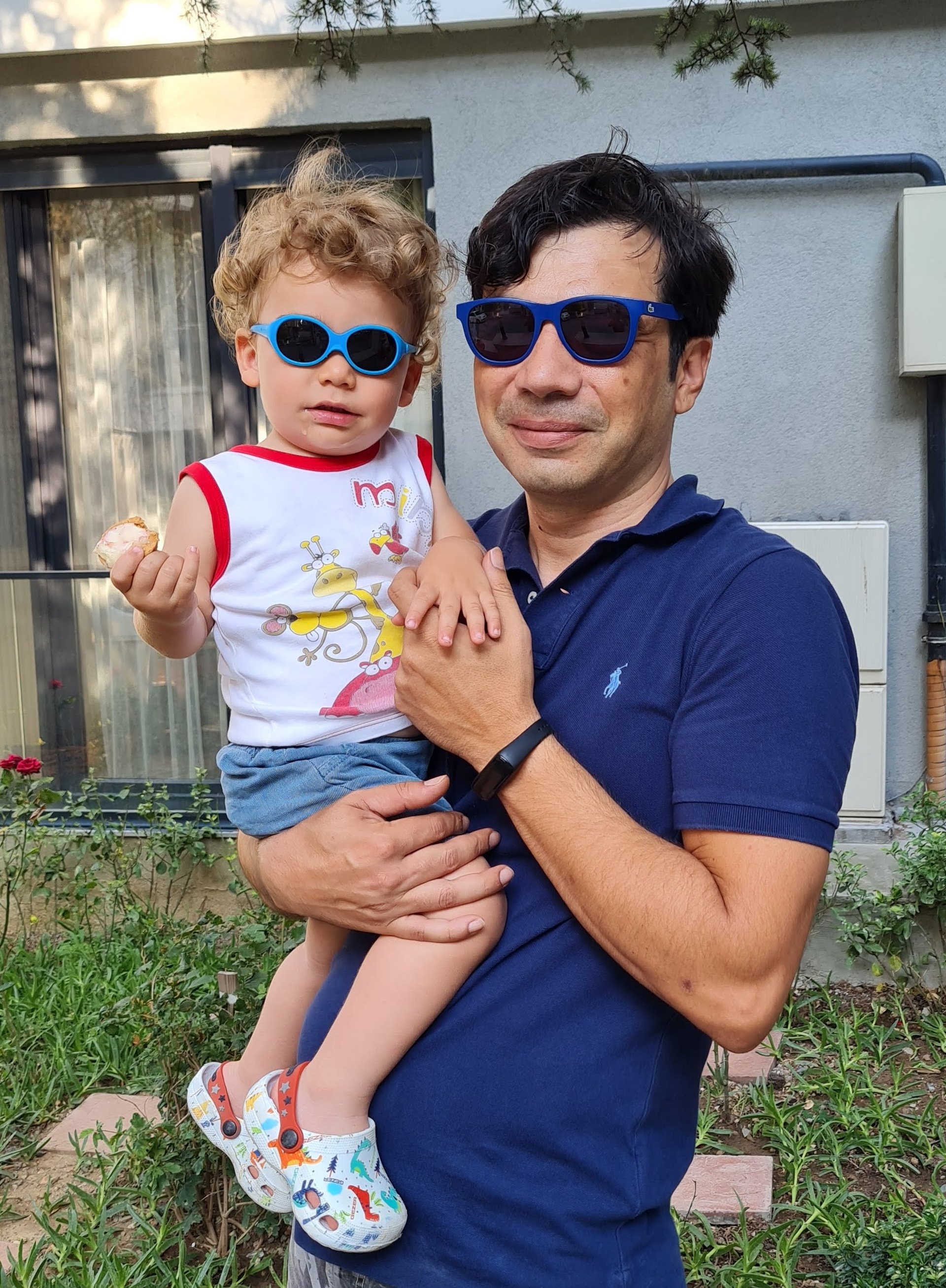“What Trauma Treatment International is doing is precious, and one of a kind. I will remain eternally grateful.”
“The transformative impact of my TTI therapist’s intervention is so profound, I struggle to encapsulate it in words. What Trauma Treatment International is doing is precious, and one of a kind.”
In 2017, Tuğrul can Kapubağlı was enjoying a successful career as a manager in a construction company in his native Turkey. He had recently rekindled his relationship with his college girlfriend, and was preparing to travel to Libya to oversee works at a power plant. Little did he know that the business trip would change his life forever.
Now 43, Tuğrul explains: “I was responsible for construction for the whole company, and often went to developing countries like Iraq, Burundi and Papua New Guinea. I’d arrange for the construction equipment to be in place, make sure the team knew what they were doing, and check that they had the right resources.
“There was always an element of risk to these visits. I went to Iraq just after the invasion and saw lots of armed men in the streets and blown-up buildings. But I never thought anything would happen to me. I even joked with colleagues before I went to Libya about the security there; I’d had a bad feeling but didn’t take it seriously.”
This bad feeling turned into his worst nightmare shortly after arriving in the north African country. “During the trip from the airport to the construction site, I was abducted along with two other guys from my company,” he says. “Two armed men with Kalashnikovs put us in a truck and drove us for six hours. They beat us, shouted at us and took our clothes until we were just in our underwear. They were just the foot soldiers and didn’t know much, but their boss wanted ransom money from our company.”
While Tuğrul anticipated his ordeal would last a couple of weeks while negotiations were made, he was actually about to endure a harrowing eight-month capture in the searing African heat.
“For the first four months, we were locked in a bare concrete room, the three of us chained together by our feet,” he recalls. “There were only cracks of light coming in and it was absolutely filthy. We could wash a little, but it would make you more dirty to try and shower.
“At first I was scared, then I was angry and then I was shut off; even talking to the other guys was too much. There was no television, no books…I don’t know how many times I counted the cracks in the walls.
“After four months, we were taken to a rudimentary tent in the desert. It was around 40 degrees and there was no way to get relief from the heat. But it was a little better as we weren’t chained together and we were given pots to cook for ourselves. Doing something is better than doing nothing.”
While Tuğrul and his colleagues were given an element of freedom in the desert, they were completely stranded and at the mercy of both the heat and frequent sand storms. “We could have walked but there was nothing in either direction for 50 miles,” he says. “Everything we ate had sand in it.”
Eventually, the trio were transported back to another concrete room in an unknown city. “The ceiling was made of sheet metal,” says Tuğrul. “By this point in the year, it was over 45 degrees outside but felt more like 50 inside. I had a rash all over my body from the heat.”
After eight long and arduous months, Tuğrul and his fellow captives were given the news they had been waiting to hear. “They told us we were going home but I didn’t believe them - they’d told us that twice before,” he says. “It was their way of keeping us calm and stopping us making trouble. I’d had vivid dreams in Libya of being reunited with my family and I was worried this was just another dream.
“But our company had paid the money and we were taken to Tripoli airport where there was a media circus. I refused to speak. When we got to Istanbul, I heard my girlfriend Pinar’s voice on the phone and that was the first time I cried.”
While his release was something he’d endlessly hoped for, Tuğrul found returning to his former life a huge struggle. “I’m not the guy I was before I was captured,” he says. “When you’ve lived in survival mode for eight months, it’s not easy to go back. People around me had normal problems but these just seemed meaningless to me. My family and friends were very supportive but they couldn’t understand what I’d been through; they didn’t know what was going on in my brain.”
Tuğrul, who married Pinar six months after his release, found himself in a depressive, angry state in which he was plagued by frequent nightmares. What he calls his “emotional instability” led to him contemplating suicide. This feeling was exacerbated when he returned to work as it triggered memories of his ordeal. “I needed to build a future for me and my wife,” he says. “But I had a lot of resentment and pent-up anger, and was crying every morning before work.”
Despite these challenges, Tuğrul refused to let his ordeal get the better of him. Having conducted extensive research online, he found Trauma Treatment International’s referral partner organisation Hostage International. The charity, founded by former hostage Terry Waite, provides emotional and practical support to hostages and detainees, along with their loved ones. Through Hostage International, Tuğrul was referred to Trauma Treatment International’s Trauma Clinic for psychological treatment.
TTI’s Trauma Clinic specialises in delivering evidence-based treatment to victims of extreme and horrific events, including hostage situations and torture. The clinical associates delivering therapy are highly specialised and experienced in working with people suffering from trauma caused by collective violence. This expertise is crucial in such a complex field.
“I’d seen three different therapists over four years in Turkey and none of them could help me,” says Tuğrul, who is now dad to two-year-old Toprak. “The work my TTI therapist does is on another level. The transformative impact of her intervention is so profound, I struggle to encapsulate it in words.
“She genuinely grasped the depth of my suffering. Her therapeutic skills are only surpassed by her extraordinary capacity for empathy – you can have the best education in the world but you can’t fake empathy.”
Tuğrul, who had weekly remote therapy sessions with his TTI therapist for six months, adds: “She helped me analyse and untangle some of the mess that I have in my mind. There was a darkness inside me and I didn’t know how to deal with it. I was afraid of putting my trauma on my child and having him grow up in an angry environment.
“For example, she helped me put my memories in order. With severe trauma, your memories are all jumbled up and there is no timeline. With my therapist’s help, I could compartmentalise them and then their power was reduced.
“She also helped me understand that I had every right to be angry at what had happened to me. That started a change in me, and I realised that I didn’t want to work myself to death. I was at the end of my rope after five years back at the company, so I decided to quit and focus on being a good husband and father.”
Tuğrul says that he’ll never be “fixed” from the trauma he has endured, but that his therapist has given him the tools he needs to have a brighter future. “I have moved back to my home town with my wife and my son, who is the joy of my life,” he says. “I will work again at some point, but it will be on my terms. Life is not about money, it’s about relationships.”
He adds: “What Trauma Treatment International is doing is precious, and one of a kind. Thanks to TTI, I have regained the confidence I needed to be the father and husband my family rightfully deserve. I will remain eternally grateful.”

